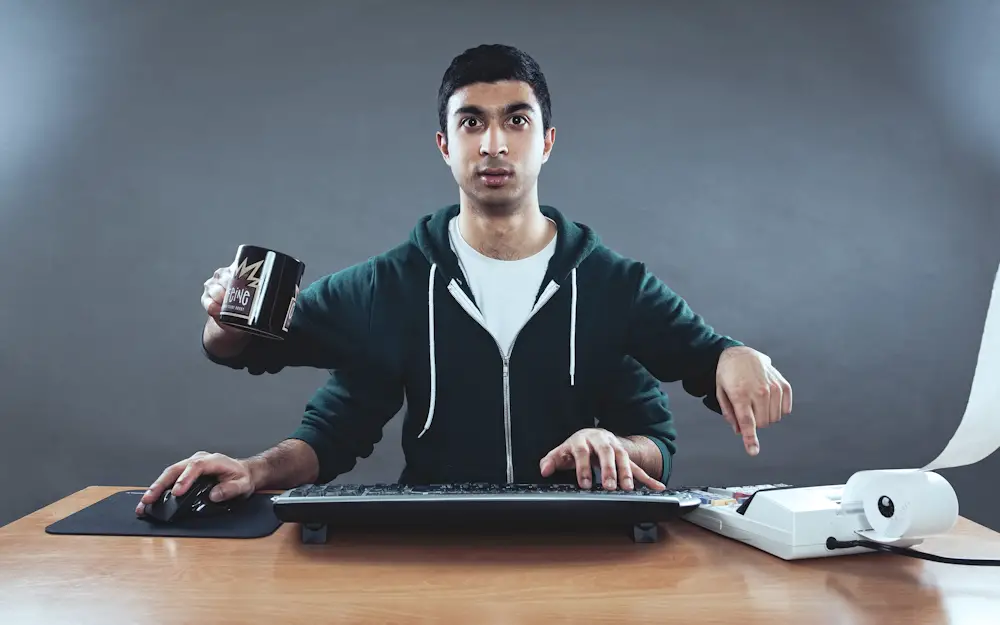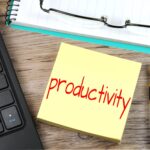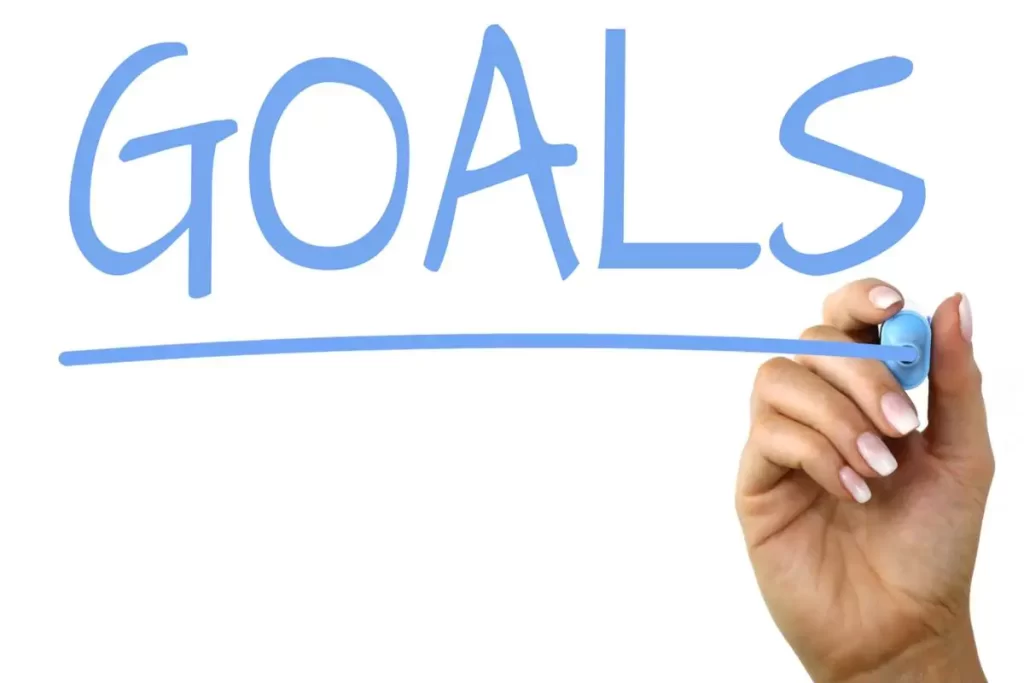 Multitasking has become a way of life and is often believed to be a great strategy to get more done in less time, especially when aided by new technological tools.
Multitasking has become a way of life and is often believed to be a great strategy to get more done in less time, especially when aided by new technological tools.
But a growing body of research is showing that multitasking is in most cases a myth or a delusion that we harbor.
The vast majority of people (some 97.5% according to a University of Utah study on driving) perform much worse on each task being performed at once and are overall much less productive.
Our brains can’t simultaneously perform multiple tasks demanding high cognitive ability, so, as MIT professor of neuroscience Earl Miller puts it, “you’re not paying attention to one or two things simultaneously, but switching between them very rapidly.”
And it’s this constant switching that kills total performance.
When Can Multitasking Be Helpful?
Multitasking, of course, can be perfectly fine when one of the tasks is more automatic and requires little cognitive ability–think listening to the radio or a podcast when folding laundry or doing the dishes.
But more frequently, we try to maintain a couple of chat conversations at work while responding to emails and also working on the big quarterly report.
Or in a more recreational context we surf Facebook while watching a TV show or constantly check our handheld gadgets during a conversation with friends.
Some situations can even get dangerous, such as responding to a text while driving.
We might feel like we’re wasting time if we’re not multitasking. Or even more commonly we feel bored if we’re “only” performing one task.
And it gets tough to break the cycle when these tech tools slowly addict us.
AJ Jacobs says that “the culture of distraction is rewiring our brains, making us less happy, less able to connect with people and form a conscience,” an assertion with a lot of empirical evidence. (See Nicholas Carr’s Is Google Making Us Stupid? for more.)
The apps and gadgets themselves exacerbate the problem by constantly sending notifications, enticing you to break your concentration and add another task (checking an email, reading a new article, etc.) to whatever you are already doing.
These days, it’s much more impressive to be able to singularly focused on a task without opening ten tabs and scrolling through them or constantly checking our phones.
So instead of boasting your supposed multitasking abilities, it might be more helpful to strive to be a good monotasker.
This idea has also been called single-tasking and unitasking, but whatever you call it, it’s a much deeper focus on one thing at a time, a type of concentration that many feel is being lost.
Here are a few tips for increasing your “monotasking” ability. Not all of them may be right for you, but hopefully they will give you some good ideas.
How to Stop Multitasking and “Monotask” Instead
Start small. Cold turkey solutions do not usually lead to lasting behavioral change. Start by identifying a concrete distracting or “bad” task (possibly checking Facebook or surfing blogs) and set a daily limit, say 2 or 3 times a day.
Plan a set number of minutes for that task and do it all then. Or pick a particular “good” task (be it sitting down to read the paper or even watching a TV show) and force yourself yourself to do it and only it for a set time.
You might even give yourself a small reward, such as a short time for one of your “bad” tasks, to help motivate you.
Plan out your day in blocks. This builds on the previous point. You can choose blocks of any length, perhaps an hour or half hour, and decide in advance what you want to do in each block.
Be sure to give yourself some down time or a short indulgence in one of your guilty pleasures.
The idea is to be deliberate about what you choose to do. Google Calendar is a handy way to set and manage your blocks.
Try to finish each task before moving on. It’s easy to put something off until later, but this can easily start a cycle of constantly shuffling between tasks.
Of course, some jobs are larger than others, but in general the positive feeling of accomplishment can give you an additional productivity jolt.
Come up with a good workflow for saving things for later. Sometimes you can’t help but be exposed to a new article or some piece of content. They come to us as notifications, in emails, on social network feeds and many other places.
Instead of always reading them immediately, if you find a good way to save them for later you can wait and stick to a more conscious consumption schedule.
For example, I like to clip things into Evernote for later reading.
It’s often the case that I find the articles that seem so cool and important right now are much less so later on, but this way I avoid the bad feeling that comes from ignoring it completely.
Turn off as many notifications as possible. Just about every app is going to make a desperate overture to send you push notifications, because that’s how it will get you to constantly engage with it no matter what else you might be doing.
These constant updates are distracting and condition you to pay half-attention to everything, so reject them and instead check these apps at designated times.
Hide apps and make them less easy to access If one of your major time-sucks in is constantly sitting there staring at you (on your phone’s home screen or your computer’s taskbar), it will be much more difficult to stick to your monotasking habits.
Mohsin Hamid wrote in the NYTimes’ Bookends that he “used the restrictions feature in my phone’s operating system to hide the browser, requiring me to enter a code to expose and enable it. I can use the browser when I find it necessary to browse. But, for the most part, this setting serves as a reminder to question manufactured desires, to resist unless I have good cause.”
If you choose to follow this advice, put something you consider “good” and more productive right there on your home screen and start to condition yourself to go to it when you inevitably pick up your phone looking for something to do.
Monitor your usage. It may seem foolish to turn to yet another app to help manage your personal app use, but services like Rescuetime monitor your productivity online and give you a report of what you have been doing.
When used in conjunction with other strategies listed here, it can be a good way to measure your progress.
Nuclear option. Of course, you could cancel your internet, sell your phone or smash all of your technological gadgets on the ground, but remember that these drastic solutions rarely alter your long-term habits.
Image credit: ryantron




Leave a Reply